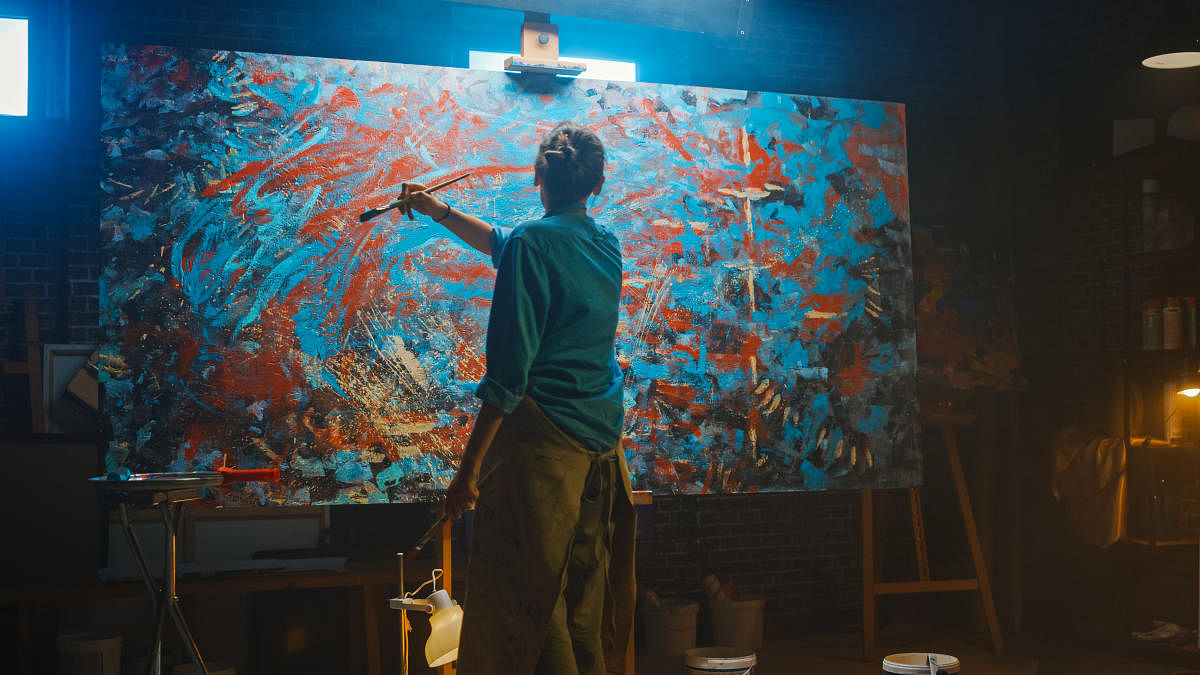
A volunteering initiative that I’m part of focuses on empowerment of women artists and art professionals through advocacy, pro-active representations to government and implementation of women-centric projects in Karnataka. It is a subset of the Women’s Indian Chamber of Commerce and Industry (WICCI), a business chamber for Women in India, founded by Dr Harbeen Arora.
To elaborate on the background, the National Arts Leadership Council headed by Beena Unnikrishan, was set up last year and is working on areas specific to visual arts, literary and performing arts and is committed towards ‘fostering a culturally vibrant nation through accredited growth of art’. The idea is to bring in financial literacy among artists and help them create a sustainable career. Using ‘pockets’ in garments as a motif and a device for change, with its numerous connotations with power equations, politics and sexism, the Pocket Movement has been reignited to spark conversations around this important issue.
Pocket movement
Joining hands with Taarini Saraf, a 17-year-old activist, the focus is on reiterating gender equality and economic independence. This project will be showcased as part of the ‘Economically Independent Artists’ endeavour, which will see a soft launch tomorrow online on social media.
The Karnataka council is at a nascent stage; it was formed recently and we are in the process of ideating and identifying specific areas that need contribution, with efforts on to define projects that can make meaningful contributions to the art and cultural landscape in Karnataka. The team comprising visual artists, curators, writers, art historians, designers, gallerists and other art professionals is poised to move towards ‘creating a more inclusive and gender-equal world’, aligned with The International Women’s Day theme for 2021.
A series of panel discussions on topics that are relevant, and reflect the currency of contemporary times, ranging from public art, role of museums and other topical concerns, all with an emphasis on gender inequities, tokenisms to lack of opportunities, is on the anvil. Apart from this, we are committed to building databases of women artists and optimising visibility, to help create opportunities for artists in smaller towns of Karnataka. We look forward to creating networking opportunities, mentorship and training programmes, and ensuring access to technology with the purpose of enabling financial sustainability. At the same time, we are cognisant of larger issues and realise that much of what we can achieve will depend on key partners, funding opportunities and government support.
In an effort to celebrate and highlight women-centric initiatives on March 8, the Karnataka Arts Leadership team too will kickstart efforts with an online panel discussion on public art. Artist Shanthamani Muddaiah and Head-Art Programme BIAL, Yamini Telkar, will join me and the session will be moderated by Rajani Prasanna, professor of art. Readers can watch this and several other art-related programmes organised by the National Council, through the day, on Facebook live on the WICCI Arts Leadership Council page.
The author is a Bengaluru-based art consultant, curator and writer. She blogs at Art Scene India and can be reached on artsceneinfo@gmail.com
Dab Hand is your fortnightly art world low-down. It will tell you all about what fresh ideas are out there, what to collect and what to admire from afar. And, of course, what not to.